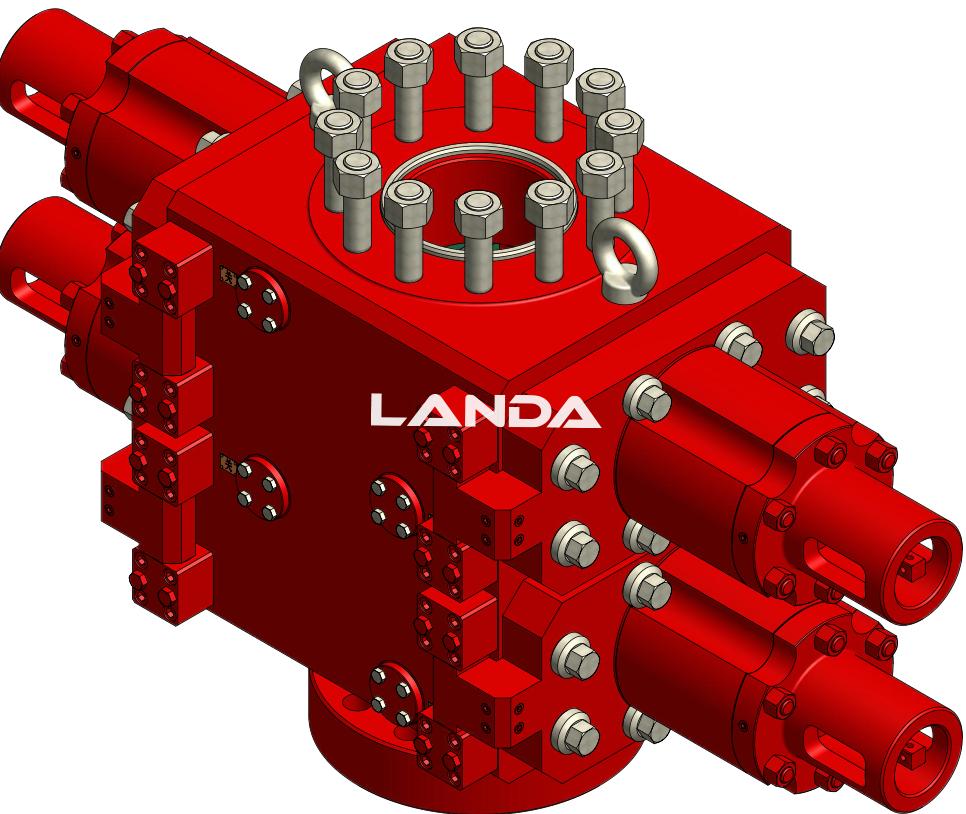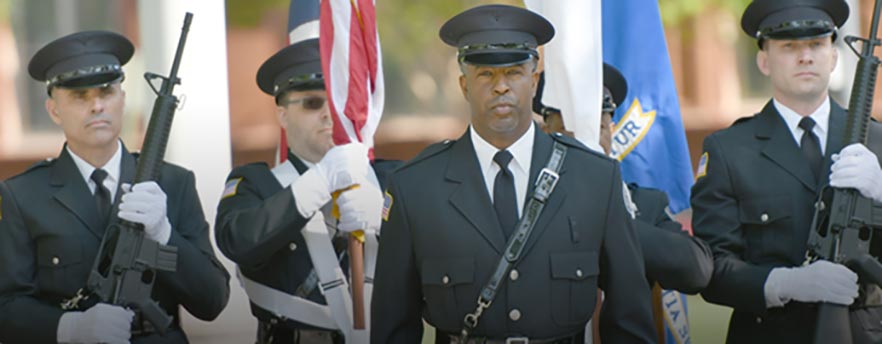What Does A Bop House Mean? Understanding The Bureau Of Prisons' Role
When you hear talk about a "bop house," it's easy to wonder just what that phrase points to. For many, it's a specific way of referring to the Bureau of Prisons, a major federal agency in the United States. This isn't about music or a particular style of living, you know. Instead, it’s very much about a system that holds a lot of weight in the federal justice structure. We’re talking about the places where correctional officers work, keeping offenders in custody, and the people who make that happen every single day.
It's interesting, really, how terms develop to describe important institutions. The Bureau of Prisons, often just called the BOP, has a distinct purpose within the government, and its facilities are where that purpose comes alive. So, if someone mentions a "bop house," they're most likely talking about a facility run by the Bureau of Prisons, or perhaps the agency itself, and all the duties that come with it, too.
This discussion will help clear up any confusion and give you a real look into what the BOP does, what it means for those who work there, and how it fits into the broader picture of public safety. We’ll explore the daily life, the training, and the responsibilities of the people who serve in these settings, like your, correctional officers, who have a pretty vital role, actually.
- Erin Siena Jobs
- Henry Daniel Moder
- Kid Stabbed At Track Meet
- Kourtney And Travis Baby
- Chosen Season 5 Release Date
Table of Contents
- Understanding the "Bop House" Meaning
- The Role of BOP Correctional Workers
- Training and Career Paths in the BOP
- Safety and Equipment for BOP Staff
- The Unique Aspects of BOP Employment
- Frequently Asked Questions About the BOP
Understanding the "Bop House" Meaning
When folks talk about a "bop house," they are usually referring to a facility operated by the Bureau of Prisons. This federal agency is responsible for the custody and care of individuals convicted of federal crimes. It’s a very specific part of the justice system, and its operations are quite different from, say, a local police department or even other federal law enforcement groups, you know.
The core mission of the BOP is to maintain the custody of offenders. That's their primary responsibility, and it shapes everything they do. So, a "bop house" is essentially a federal prison or detention center, where this important work takes place. It's a place where rules are very strict, and safety is a constant concern, too it's almost.
Understanding this meaning is key to grasping the daily operations and the kind of work performed by the people within these walls. It’s a serious environment, and the people who work there have a very particular set of duties. This distinction is pretty important when you consider federal employment, actually.
- How Old Is Moana In Moana 2
- Selena Gomez Engagement Ring
- Aiden Caohman Vieques Kennedy
- Pharrell Williams Wife
- Gordon Ramsay Wife
The Role of BOP Correctional Workers
The individuals working in a "bop house" are known as correctional workers, or correctional officers. Their job is quite specific, focusing on the day-to-day management of incarcerated individuals. This is a crucial distinction from other federal roles, as a matter of fact.
Their duties involve overseeing inmate activities, maintaining order, and ensuring the security of the facility. It's a job that demands constant vigilance and a calm demeanor, so. Working in a detention center, like those run by the BOP, is somewhat similar to working in a county jail, in some respects.
Not Law Enforcement Officers, Per Se
It's important to understand that the BOP trains its people to be correctional workers, not law enforcement officers in the traditional sense. While they are commissioned and receive full federal law enforcement salary and retirement benefits, their primary role isn't making arrests out in the community. Their main job is custody, you know.
The BOP gets what's called 6C coverage, which is a special retirement provision, because their main responsibility is to maintain the custody of offenders. It's not because they are law enforcement officers, per se. This is a key point that many people might misunderstand, as I was saying.
They have credentials, sure, and you don't need anything more than that for their specific duties. But trying to make an arrest outside their facility, that's not their typical function. Their focus is very much inside the walls of the "bop house," keeping things secure and orderly, basically.
Daily Duties and Facility Life
Working in a "bop house" means being part of a structured environment where routines are vital. Correctional officers monitor inmates, conduct searches, and respond to incidents within the facility. It's a job that can be dangerous, and that's a reality everyone there understands, pretty much.
The uniform color for a BOP correctional officer is typically a light blue or white shirt, which is a standard look across many facilities. Whether officers wear stab-proof vests often depends on the specific facility and its security level. Some places might require them, while others might not, you know, depending on the risks involved, too.
It’s a demanding environment, requiring quick thinking and a strong commitment to safety. The people working there are always on guard, making sure everything runs smoothly and securely, as a matter of fact.
Training and Career Paths in the BOP
For those interested in working in a "bop house," the training process is quite specific and, in some ways, unique compared to other federal agencies. It's not a typical academy experience, you know.
First off, the BOP does not have a traditional academy. Instead, new staff attend an "Intro to Corrections" course at Glynco, Georgia. This course is only three weeks long, which is quite short compared to some other federal training programs, apparently.
There have been times when the BOP was very behind in sending staff to this training. Some employees have worked on the job for several months before getting to attend FLETC (Federal Law Enforcement Training Centers) for their official training. This can be a bit of a challenge for new hires, as I was saying.
The Intro to Corrections Course
The three-week "Intro to Corrections" course provides the foundational knowledge needed for the job. It covers things like inmate management, security procedures, and the specific policies of the BOP. It’s a concentrated period of learning, designed to get new staff ready for the realities of the "bop house" environment, basically.
This initial training is what prepares them for their day-to-day duties. It's focused on the practical aspects of working in a correctional setting, giving them the tools they need to maintain custody and ensure safety. So, it's a very hands-on approach to learning, you know.
Pay Scales and Advancement
When it comes to pay, the BOP can be a bit stingy compared to other federal law enforcement agencies. Most new hires start at a GL-5 pay grade. If you are offered a GL-7, that's quite fortunate, as it's a higher starting point, you know.
The pay scale can be a point of discussion among staff. Many BOP employees either don't have the motivation or the skills and education necessary to advance into other federal law enforcement agencies that might offer higher pay. This is a common sentiment among some who work there, apparently.
However, staff fall under H.R. 218, which is a special block for those in corrections. This provides certain protections and benefits. The WS shift differential information is also something to consider for those working different hours, as a matter of fact. It adds to the overall compensation package, too.
Safety and Equipment for BOP Staff
The job of a correctional officer in a "bop house" can be dangerous. This is a reality that is always present. Maintaining custody of offenders means facing potential risks every day. So, safety protocols and equipment are incredibly important, you know.
As mentioned earlier, the standard uniform includes a light blue or white shirt. The use of stab-proof vests can vary by facility, depending on the specific security needs and the types of inmates housed there. Some facilities might have higher security requirements, making such equipment more common, apparently.
Officers are trained to handle various situations, from inmate altercations to medical emergencies. Their training, though brief at the "Intro to Corrections" course, aims to prepare them for these challenges. It's about being ready for anything that might come up, as a matter of fact.
The safety of the staff is a constant concern for the agency. They implement procedures and provide equipment to help mitigate the risks involved in working with a population of incarcerated individuals. It’s a challenging environment, and the people who work there need to be resilient, you know.
The Unique Aspects of BOP Employment
Working for the Bureau of Prisons presents a unique career path within the federal government. It's a job that requires a particular temperament and a strong sense of duty. The environment of a "bop house" is unlike many other workplaces, you know.
For one thing, the focus on custody over traditional law enforcement duties sets it apart. This means the daily tasks are centered around supervision and facility management, rather than investigative work or patrols outside the prison walls. It’s a very contained role, in some respects.
The pay structure, starting often at GL-5, is also a consideration for potential employees. While it offers federal benefits and retirement, it might not compete with salaries in other federal law enforcement agencies. This is something people weigh when choosing a career path, as a matter of fact.
Education requirements can vary. While some positions might prefer a bachelor's or even a master's degree, it's not always a strict requirement for entry-level correctional officer roles. This can make it an accessible federal job for many, apparently. Learn more about federal government careers on our site, and link to this page understanding federal benefits.
The job provides a vital public service, ensuring the safe and secure housing of federal offenders. It's a demanding but essential role in the justice system, one that impacts many lives, both inside and outside the facilities, you know. For more information on federal employment, you might check out resources like the official federal jobs portal, too.
Frequently Asked Questions About the BOP
What is the primary responsibility of a BOP correctional officer?
The main job of a BOP correctional officer is to maintain the custody of offenders. This means overseeing individuals who are incarcerated, ensuring their secure housing, and keeping order within the facility. It's very much about managing the prison environment, you know.
Do BOP officers receive law enforcement training?
BOP officers attend an "Intro to Corrections" course at Glynco, which is a three-week program focused on correctional duties. While they receive federal law enforcement benefits and are commissioned, their training and primary role are centered on corrections, not traditional law enforcement operations like making arrests in the community, as a matter of fact.
What is the typical starting pay for a BOP correctional officer?
Most BOP correctional officers are hired at a GL-5 pay grade. Some fortunate individuals might be offered a GL-7, which is a higher starting salary. The pay can be seen as less generous compared to other federal law enforcement agencies, you know, but it comes with federal benefits, too.

🔥 Merchandise trade balance definition. Trade Balance: Formula

BOP - Wellhead & Well Control Equipment - Drilling & production - Landa

BOP: Never Forgotten